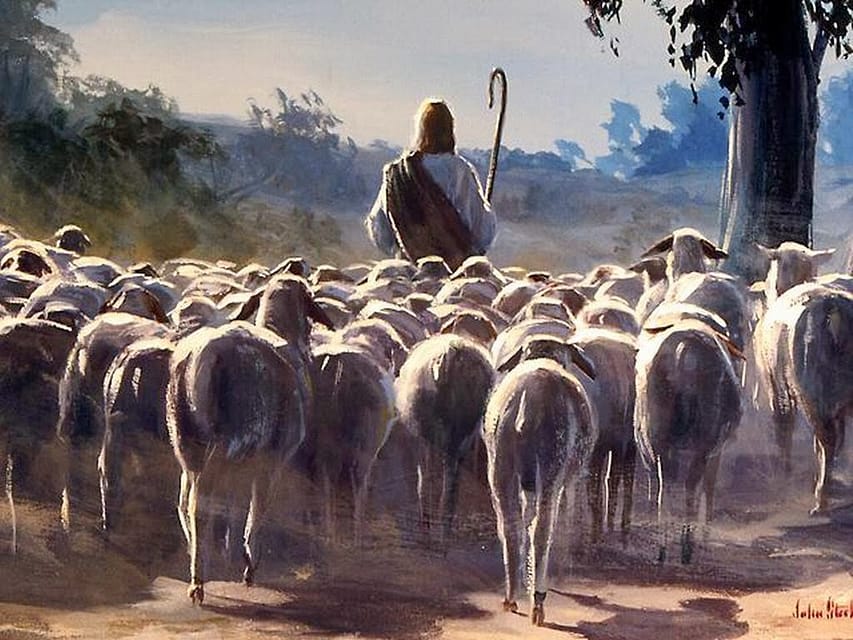Talking of Lutheran preaching, here’s an example that doesn’t fall into the clichéd pattern (rightly) decried by Aidan: our pastor’s sermon on John 10:1-10 for Good Shepherd Sunday this morning.
What I found particularly helpful in this sermon: our pastor’s unpacking of what Jesus means when he says that he is “the door of the sheep”. As Jesus says in v.9:
I am the door. If anyone enters by me, he will be saved and will go in and out and find pasture.
Some of the time, the sheep are in the sheepfold with the other sheep, safe and cared for. At other times, they go out, following their shepherd into the outside world. In the same way, we as Christians spend some of our time in the sheepfold of the church, enjoying fellowship with our (ahem) fellow sheep, being fed by our Shepherd on his word and sacraments. Then we follow the Shepherd out into the world as we go into our vocations.
However, the key point is the freedom of the sheep to “go in and out”. It’s not that one or other of being in the sheepfold or being in the outside world is “better” than the other, but that our Shepherd, Jesus, provides us with both, and gives us the freedom to “go in and out”.
Equally, for those sheep who have wandered away, the door remains open for them whenever they may return, even if after months, years or decades – but the only way back in is through the door. Only “thieves and robbers” try to get into the sheepfold other than by the door, Jesus.
Finally, as an example of this in practice our pastor gave the blind man whose story is told in the preceding chapter in John’s gospel. Here was a man who had been betrayed and driven out by those who were meant to be his shepherds, the religious leaders of Israel. However, in coming to believe in Jesus as the Son of Man (9:35-38), the blind man had gained the freedom of the sheep under the true Shepherd.
Anyway, do have a listen to the sermon. It’s only 12 minutes long, but there’s a lot packed into it.





